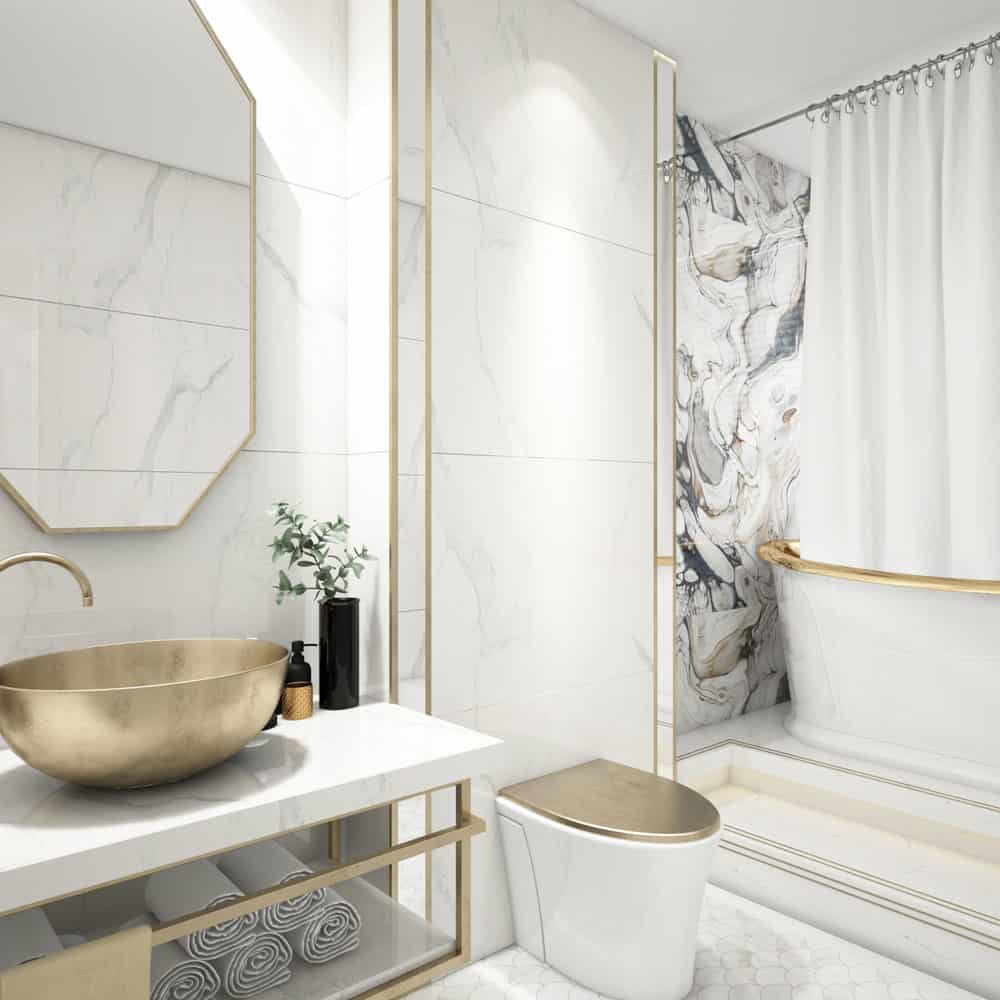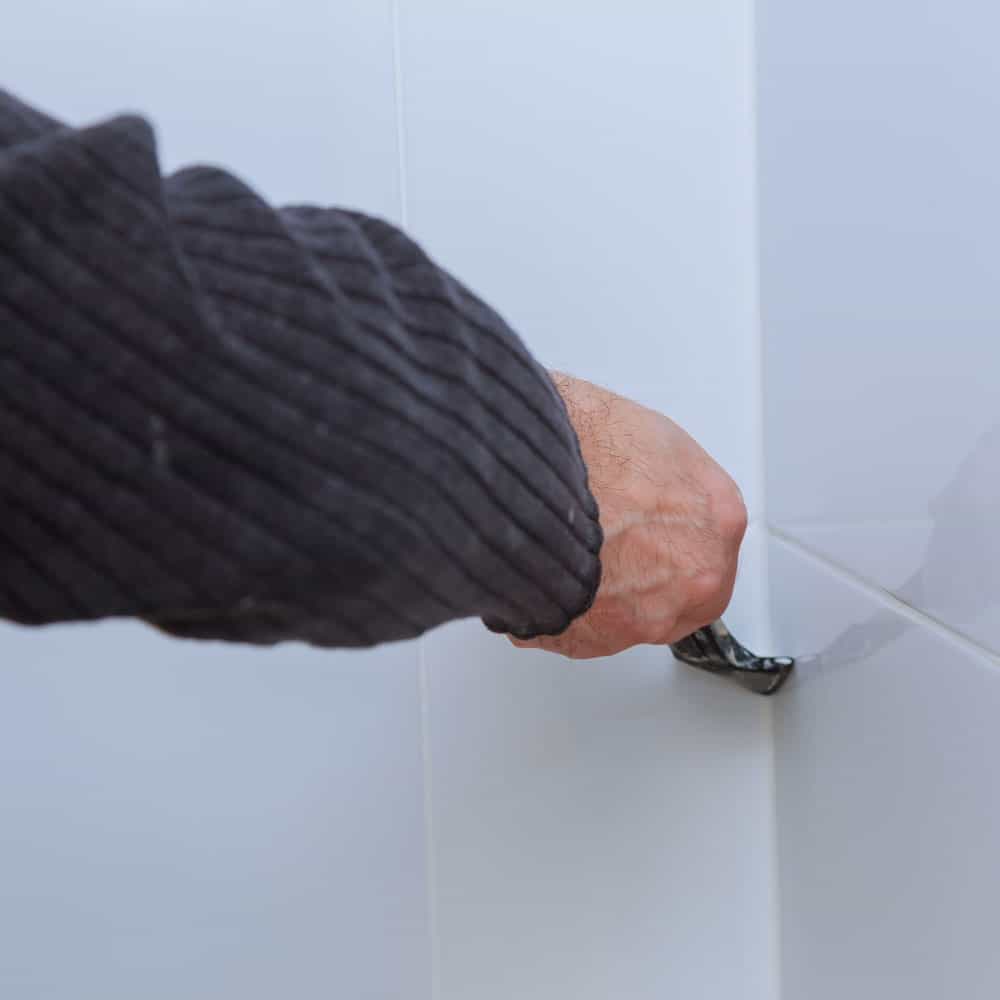Everybody enjoys a rainy day accompanied with a hot shower. Ever imagine while enjoying a hot bath with drips of water constantly inside your plaster ceiling. Causing bad odour and stained watermarks. Overtime, these stained may cause bubble which mostly happen in most housing estate when our home waterproofing has broken down.
Waterproofing prevents water from seeping into the surfaces that cause issues like growth of mould or damage to structural integrity. However, when do we require a waterproofing service? The most common tell-tale sign would be dripping of water after a rainstorm or must odour or even brown patches with bubbled surface.
This would require a professional waterproofing contractor to rectify the main source of leakage and implement these different types of waterproofing for your washroom. Each of these waterproofing methods have its unique properties and works differently for different leakage issues.
-
1. Cementitious bathroom waterproofing
A traditional method by creating a solid water-resistant layer. The cement is therefore mixed with an acrylic additive to create a sturdier, durable base, then applied as a thick layer and left to dry and harden.
It does not expand or contract under heat exposure. A simple application of cement to create a sealing layer widely use at the very start of revamping your house before tiles are laid in the bathroom.
-
2. Elastomeric waterproofing coating
In elastomeric waterproofing, we apply a coat or two with a unique rubber liquid which sips and turn into thin waterproofing membrane in bathroom.
Unlike cement, elastomeric is stretchable and useful in bathroom waterproofing which able to withstand strong heat and environment of up to 280%. The liquid can be easily applied on with a spray, roll or troweled method.
Effective in certain bathroom waterproofing conditions but idea for use in most roof.
-
3. Bituminous waterproofing coating
Bitumen is used to pave roads, but this has become a common type of waterproofing material used for some waterproofing contractors due to it’s flexible material. Bitumen also known as asphalt are flexible due to high polymer grade and fiber reinforcements and are usually spread onto the surface.
Although it is flexible and useful in waterproofing. These liquids are usually accompanied by an additional protective layer due to its based substance that reacts badly with exposure to sun and heat.
Therefore, in special circumstances bituminous will be used in conjunction with other waterproofing material and might not be effective in waterproofing toilet.
-
4. Bituminous waterproofing membrane
Like bituminous waterproofing coating. Commonly used in roofs of bathroom, a suitable bathroom waterproofing membrane. This are carried out on low-sloped roofing due to its effectiveness and normally appears in 2 different forms, touch-on forms or self-adhesive forms.
Torch-on: Applied with a blow torch and burned while being rolled out. Longer lifespan.
Self-Adhesive: Sticks onto surfaces and shorter lifespan.
-
5. Polyurethane bathroom waterproofing
The best alternative among all other bathroom waterproofing method being carried out. Mainly used for flat roofs, ceiling, bathrooms. This method of waterproofing proves to be long lasting and effective in preventing further leakage. Polyurethane waterproofing is known to be the simples form of liquid waterproofing that able to exterminate the main leak source. Able to withstand high temperature and malleable.
However, this method must be evaluated by a professional waterproofing contractor by using heat thermal detection technology to pinpoint the source of leakage as polyurethane is effective in exterminating these leakages without causing additional damage to your structural integrity.
How much does it cost to waterproof your bathroom, roof, ceiling or floor?
SWC construction does not quote without a proper site inspection. Investigation and technology such as thermal scans are put in placed to ensure a through water leakage check is carried out. Leakages might not be from the surface of these leakages but might be from other internal sources which SWC is committed to provide. We ensure that your structural is properly maintained while addressing your leakage with warranty provided. Contact us now if you’re unsure on the best bathroom waterproofing types to be deployed? With reputable testimonials and sources, our waterproofing team will be able to address any concerns you are facing.




